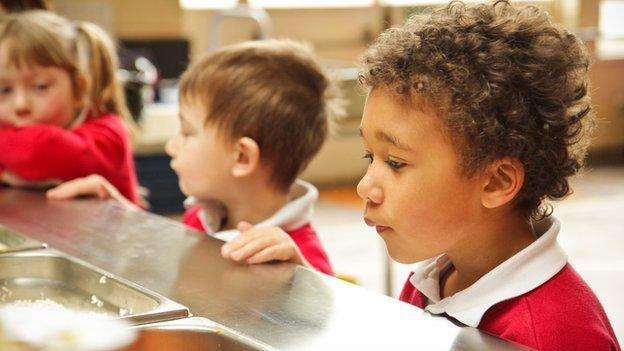Free school meals plan will help more pupils, heads say
- Published
- comments
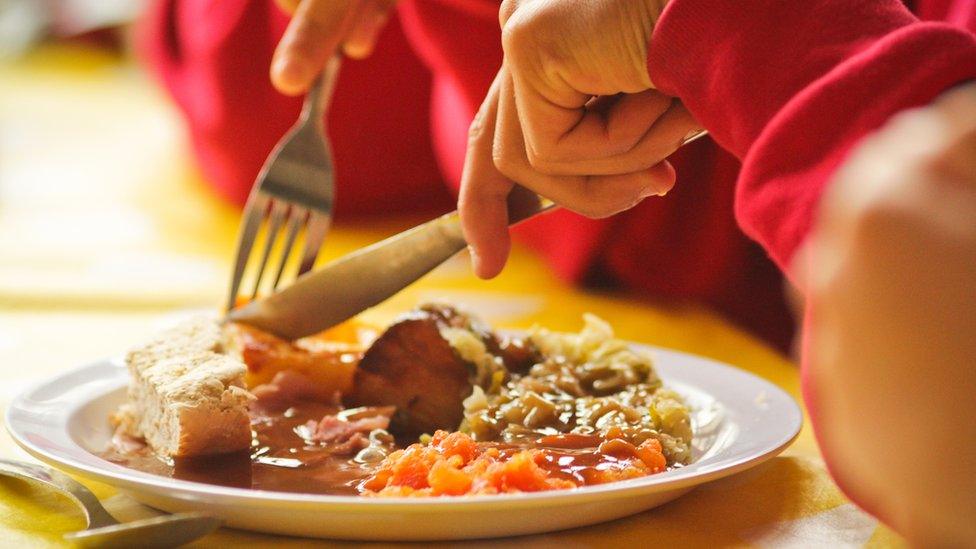
Too many children from low-income families are missing out on free school meals, say heads
Head teachers are urging MPs to back a plan to ensure all children from poorer homes in England are automatically registered for free school meals.
Parents often fail to apply for the meals for older pupils, says the National Association of Head Teachers.
The NAHT wants MPs to add a clause on auto-registration to a bill being debated on Monday.
Ministers said they did not believe that the proposed amendment was necessary "at this stage".
But NAHT general secretary Russell Hobby said it would ensure "more children get the support they are entitled to".
Until 2014 families had to apply for their children to have free school meals, which were open only to the most disadvantaged groups.
That year, the coalition government introduced universal free school meals for all children in reception, Year 1 and Year 2.
As all children were eligible, some low-income families stopped informing schools about their circumstances.
The knock-on effect was that once their children reached Year 3, they began to miss out, not only on free meals to which they were entitled, but on extra educational funding linked to being registered for the meals.

Who is eligible?
The Department for Education website, external says older children could be eligible for free school meals if their parents receive any of a range of benefits that includes:
income support
income-based jobseeker's allowance
child tax credit
working tax credit
universal credit.
But, according to the NAHT, some parents do not realise they need to apply for the free meals once their children reach Year 3 and the universal entitlement runs out.
Some may have poor literacy or English language skills, while others live in chaotic households and are unable to find the organisational focus to fill in the forms.
If adopted, an amendment to the Digital Economy Bill, external by four opposition MPs would automatically require councils to tell schools which of their pupils lived in low-income households and claimed benefits that indicated they should receive free meals.
Tony Draper, head of Water Hall Primary School in Bletchley near Milton Keynes, says registration rates for the meals there have dropped from 60% in 2014 to 28% this year.
"It's way too low for this area. This is one of the most deprived estates in the country."
Mr Draper argues that auto-registration would be a massive boost for families who are just about managing, a group the prime minister has said she wants to help.
He says some parents are too proud to admit they are on benefits.
"Auto-registration would take this issue away. It would be easy for the government to do."
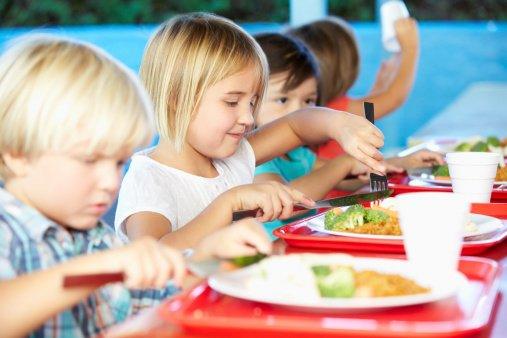
Universal free school meals were introduced for infant children in 2014
The Pupil Premium, a sum of money paid to schools to enhance the education of children from disadvantaged backgrounds, also depends on pupils being registered for free school meals.
So if fewer parents apply for the meals, the school would get less Pupil Premium money and be less able to plan specialist help for children from low-income families, explained Mr Draper.
If adopted, the new clause "could deliver much-needed support and money for children and schools", said Mr Hobby.
The union says it would be an easy change and would show the government's "true commitment to social mobility".
A government spokeswoman did not comment directly on the reasons why some parents failed to register their children for free school meals but said: "The Department for Education already has a tool to enable parents to check for eligibility for free school meals, so we don't believe it's necessary for this amendment to be added to the bill at this stage."
- Published15 April 2016
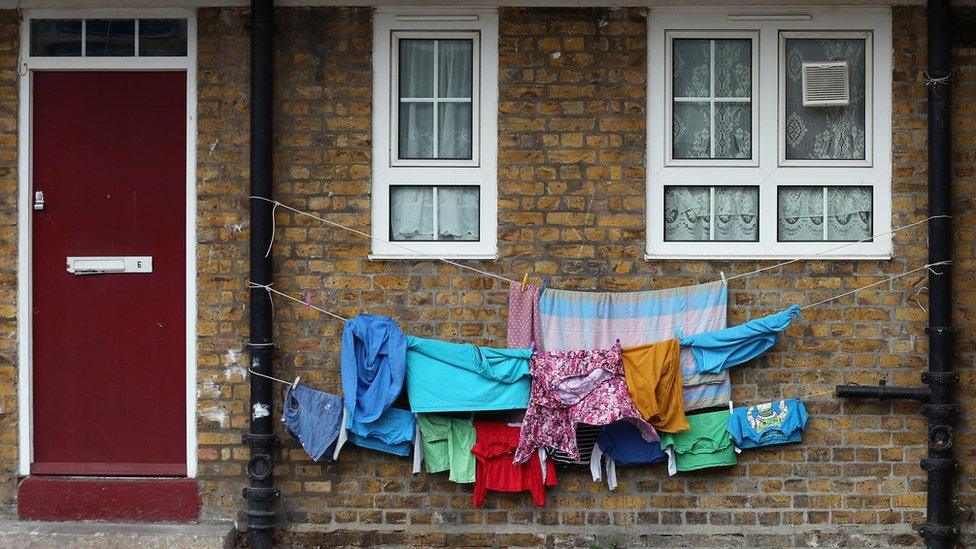
- Published5 April 2016
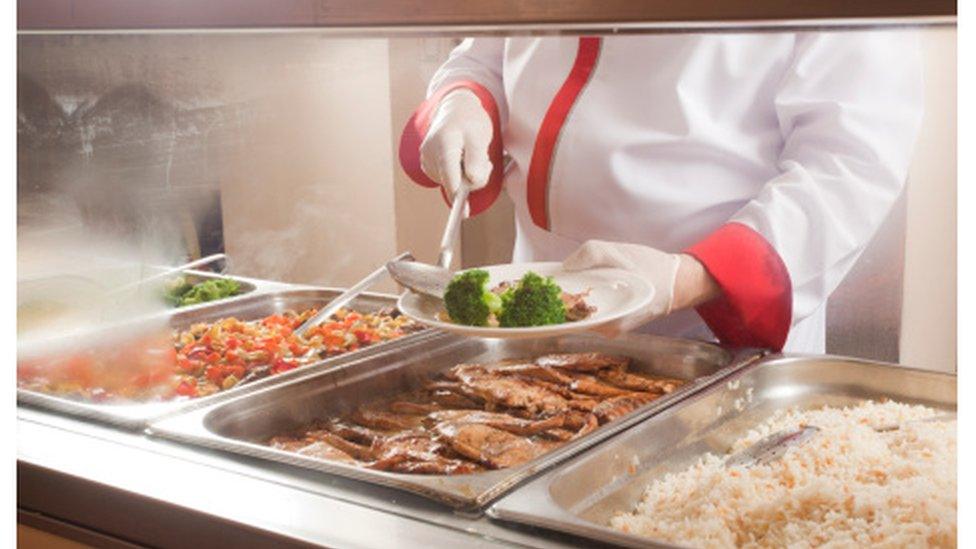
- Published27 September 2015
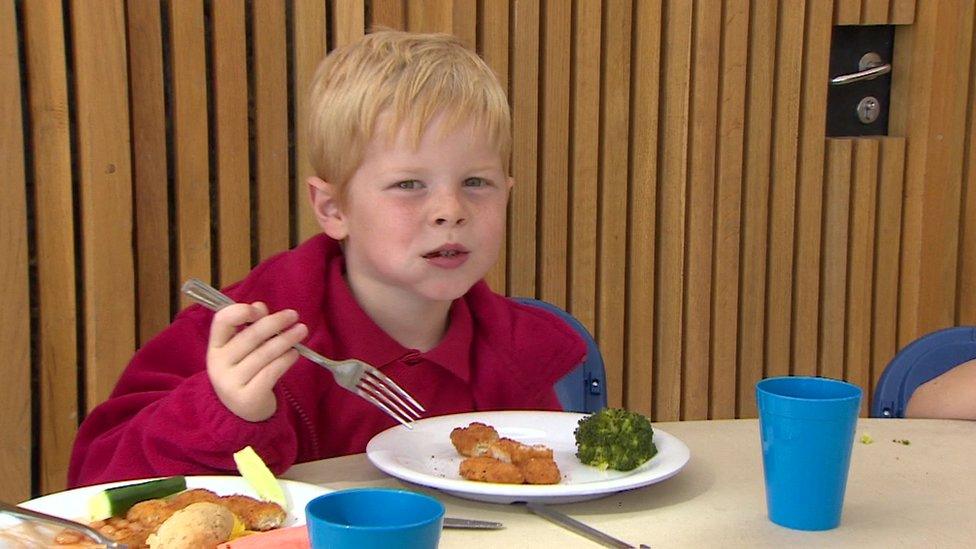
- Published2 September 2014
